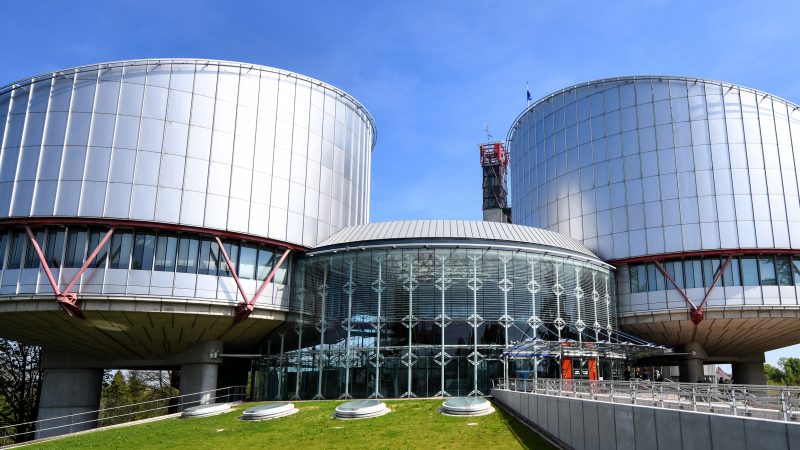Moldova: ECHR rules in favour of Moldovan anti-corruption activist
The European Court of Human Rights (ECHR) has ruled that a Moldovan activist’s conviction for using sculptures of genitals to protest against corruption was “manifestly disproportionate.”
The case concerned Anatol Mătăsaru’s conviction for demonstrating in front of the Moldovan prosecutor general’s office with obscene sculptures in 2013. His sculptures likening public officials to genitals were intended to draw attention to corruption and political control over the Prosecutor’s Office.
The Moldovan courts found that his actions had been “immoral” and offensive for the senior prosecutors and politicians he had targeted. He was given a two-year suspended prison sentence.

The ECHR however found the interference with the activist’s freedom of expression had not been necessary in a democratic society and that there had been no justification whatsoever for imposing a prison sentence, even if suspended.
“Such a sanction went beyond what might have been necessary to restore a balance between the various interests involved, namely the right to freedom of expression against the right to dignity,” ruled the court, which noted that such actions could have a serious effect on others and discourage them from exercising their freedom of expression.
Mr Mătăsaru has a long history of protesting against corruption in Moldova. In 2014 he placed a human-size pig-like figure in front of the prosecutor general’s office. The pig held a banner saying “Spit on me, I am corrupted.”
15 January 2019
Disclaimer: All views, opinions and accounts included in the RAI News Section are those of the authors; their inclusion does not imply official endorsement or acceptance by RAI. The News Section reflects the selection of topics of informative value to the organization and its stakeholders. Its content is taken from press/media sources and does not in any way reflect official RAI Secretariat policy. RAI Secretariat is not responsible for possible inaccuracies in media reports.
